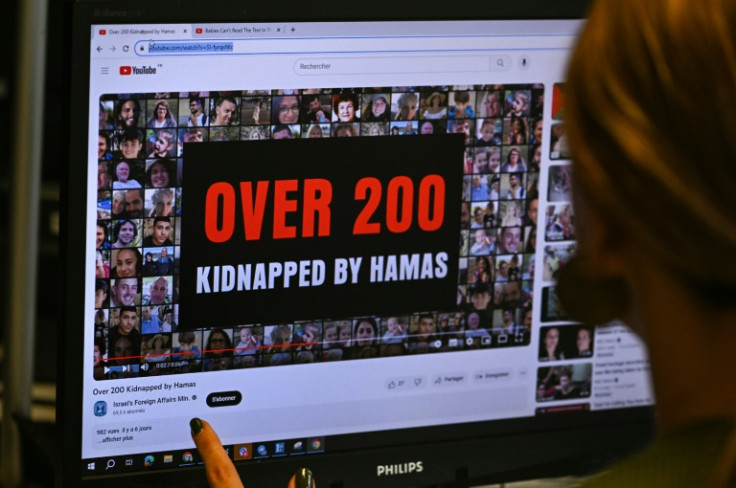
Tens of thousands are expected to attend a march against anti-Semitism in Paris on Sunday amid bickering by political parties over who should take part and a surge in anti-Semitic incidents across France.
Tensions have been rising in the French capital -- home to large Jewish and Muslim communities -- in the wake of the October 7 attack by Palestinian militant group Hamas on Israel, followed by a month of Israeli bombardment of the Gaza Strip.
More than 3,000 police and gendarmes will be deployed to maintain security at the "great civic march", according to Interior Minister Gerald Darmanin.
On the eve of the march, President Emmanuel Macron condemned the "unbearable resurgence of unbridled anti-Semitism" in the country.
"A France where our Jewish citizens are afraid is not France. A France where French people are afraid because of their religion or their origin is not France," he wrote in a letter published Saturday in the daily Le Parisien.
He said Sunday's march should show France as "united behind its values, its universalism".
Hamas's shock October 7 attack killed about 1,200 people, mostly civilians, in Israel and 239 people taken hostage, according to Israeli officials.
The Israeli air and ground military campaign in response has left more than 11,000 people in Gaza dead, according to the Hamas-run health ministry.
France has recorded nearly 1,250 anti-Semitic acts since the attack.
Macron has said he will attend the march only "in my heart and in my thoughts".
He condemned the "confusion" surrounding the rally and said it was being "exploited" by some politicians for their own ends.
The speakers of the lower and upper houses of parliament, Yael Braun-Pivet and Gerard Larcher respectively, called on Tuesday for a "general mobilisation" at the march against the upsurge in anti-Semitism.
They are to lead the march behind a banner stating "For the Republic, against anti-Semitism".
The hard-left France Unbowed (LFI) party said it would boycott the event which the far-right National Rally (RN) plans to attend.
Far-right leader Marine Le Pen has declared the march should also serve to stand against "Islamic fundamentalism" -- a pet theme of her anti-immigrant party.
"The more people there are, the better," she said, adding that she was ready to march "at the back" if her attendance was a problem.
LFI leader Jean-Luc Melenchon rejected the march as a meeting of "friends of unconditional support for the massacre" of Palestinians in Gaza.
Communist leader Fabien Roussel said he would "not march alongside" the RN.
He said the far-right party had been founded by people who were "repeatedly condemned for anti-Semitic remarks" and who "collaborated" with Nazi Germany.
Other left-wing parties as well as youth and rights organisations will march behind a common banner separated from the far right.
No speeches are planned.
Prime Minister Elisabeth Borne said on Sunday that "there is no place for posturing" at the march.
"This is a vital battle for national cohesion," she wrote on X (formerly Twitter), hours before she herself is expected to walk at the head of the column.
Borne's own father survived the Nazi death camp Auschwitz in occupied Poland, only to take his own life when she was 11.
Among the long list of recent anti-Semitic acts, Paris prosecutors are investigating an incident on October 31, when buildings in the city and suburbs were daubed with dozens of Stars of David.
The graffiti, which brought back memories of the Nazi occupation of Paris during World War II and deportation of Jews to death camps, was condemned across the political spectrum.
The march also comes a day after several thousand people demonstrated in Paris under the rallying cry "Stop the massacre in Gaza".
The left-wing organisers called for France to "demand an immediate ceasefire" between Israel and Hamas militants.



